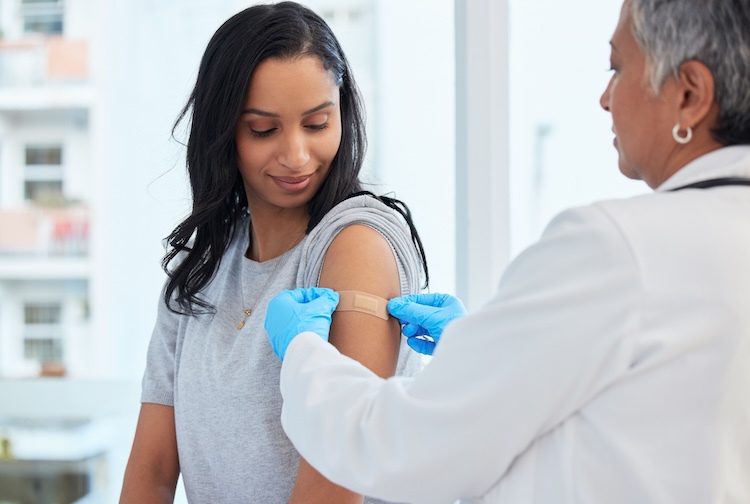
Breakthrough infections, viral load: What does this mean to you?
January 14, 2022 Photo: Getty Images
Photo: Getty Images
Updated January 14, 2022, to include information on boosters and omicron.
With COVID-19, your best protection is vaccination. But what's this we're hearing about breakthrough infection? Viral load? It’s getting so complicated.
Here, VCU Health infectious disease expert Dr. Michelle Doll explains what breakthrough infection and viral load mean and why these terms are in the news.
 What is breakthrough infection? What is viral load?
What is breakthrough infection? What is viral load?
Breakthrough infection refers to cases in which a person vaccinated against COVID-19 nonetheless becomes infected with the virus. Viral load refers to the amount of virus that can be detected in an infected person. High viral loads are concerning because they can mean the person is more infectious.
Why are breakthrough infection and viral load in the news these days?
The Centers for Disease Control and Prevention(CDC) published an analysis of clusters of infections driven by the delta variant of the SARS-CoV-2 virus. They found that a large portion of those infected in these clusters had been fully vaccinated. Furthermore, the viral loads were similar between those vaccinated and unvaccinated, suggesting that vaccinated individuals who develop breakthrough infections are very capable of transmitting the infection to others.
How likely am I to get a breakthrough infection? How contagious is the omicron variant?
The omicron variant is extremely contagious -- much more so than any other variants we have seen so far. It is the primary variant seen today in the United States. Your risk of a breakthrough infection depends on a lot of factors, including how prevalent COVID-19 is in your community and to what extent you have employed risk mediation strategies, such as social distancing, masking and avoiding high risk activities, like large crowds and poorly ventilated indoor spaces.
Do people with breakthrough infection get just as sick as those who were never vaccinated?
No, the good news is that the vaccines, especially in combination with a booster shot, continue to offer protection from severe disease. In general, those who are vaccinated but go on to develop breakthrough infections are less likely to be hospitalized or develop severe disease. Of course, other factors can affect severity of disease, such as underlying medical conditions and the ability of the immune system to respond to the vaccine.
If most people with breakthrough infection don’t get severely ill, what’s the big deal?
If breakthrough infection can readily transmit the virus through our communities, it can put the brakes on efforts to resume the activities we enjoyed before COVID-19. If the pool of vulnerable people is large enough, we can easily return to surges of infection that overwhelm the health care system. This is exactly what we're seeing now with omicron.
We are not just talking about unvaccinated persons as vulnerable, though they certainly are, but even those who are fully vaccinated may have underlying medical conditions, extremes of age or poor immunologic response to the vaccine, placing them at risk if challenged with the infection.
Although many people recover from COVID-19 or have mild or no symptoms, it is still a deadly disease. More than 800,000 people in this country have died from COVID-19.
For more information
For a variety of news and information on COVID-19 and how VCU Health is keeping patients safe, please visit our COVID-19 News Center.
This story was originally published August 2, 2021.



